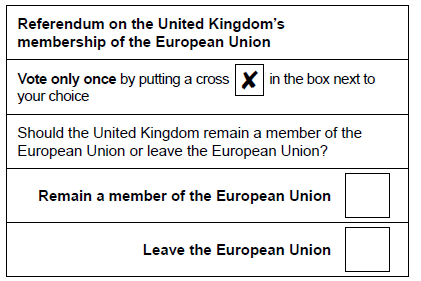June 22, 2016
Brexit Explained
- The United Kingdom has negotiated “a new settlement” with the European Union.
- The British people will vote on Thursday on whether to remain in the EU on these new terms or to leave the EU.
- The major themes of these new terms involve issues of sovereignty, competitiveness (regulatory burdens), immigration (government benefits), and economic governance (Eurozone issues).
While campaigning in 2013, David Cameron promised the British people that he would negotiate “a new settlement” for the United Kingdom with the European Union. Then the British people would have the opportunity to vote in a very simple referendum on whether “to stay in the EU on these new terms, or come out altogether.

In a November 2015 letter, Cameron outlined four main areas of reform to be sought: sovereignty; competitiveness; immigration; and economic governance. At a European Council meeting in February of this year, the new terms of the EU-UK relationship were announced. They include:
- Sovereignty: The United Kingdom does not have to commit itself “to further political integration into the European Union.” This means that European Union constitutional and treaty references to “ever closer union” do not apply to the United Kingdom.
- Competitiveness: The European Council noted that “better regulation” is “a key driver” of economic growth and job creation. It noted positively the European Commission’s commitment to review annually EU efforts to “avoid over-regulation and reduce burdens on business.”
- Immigration: Bearing in mind the free movement of workers across the EU, the council reiterated that EU member states “have the right to define the fundamental principles of their social security systems and enjoy a broad margin of discretion to define and implement their social and employment policy, including setting the conditions for access to welfare benefits.”
- Economic governance: The EU and member states that have chosen whether to adopt the Euro as their currency or not will not discriminate against those that have made a different decision. Discrimination “between natural or legal persons based on the official currency of the Member State ... is prohibited.”
The British people will vote on Thursday on whether the United Kingdom should remain in the European Union on these terms.
Next Article Previous Article
